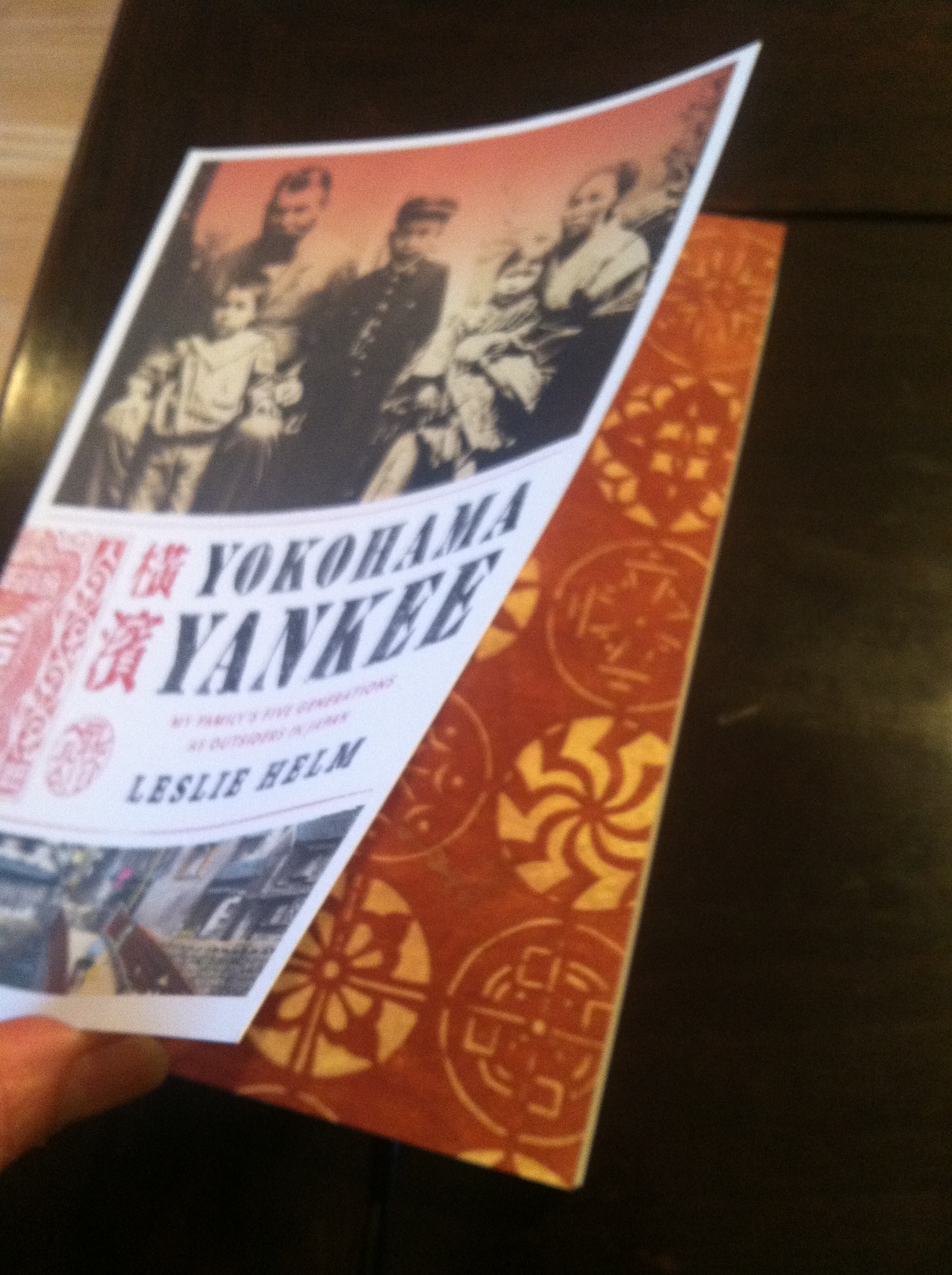In a wonderful piece in the New York Times today, Alexander Stille, author of the family memoir, “The Force of Things: A Marriage in War and Peace,” makes the point that the writer of a family memoir “is taking events that belong to several people, appropriating them for himself, and turning them into something that feels alien to those who have lived them.” The writer invariably simplifies some of the secondary characters, he says, portraying them in a way that may seem unfamiliar to the characters themselves.
Stille’s story hits home to me as I wait for my memoir “Yokohama Yankee: My Family’s Five Generations as Outsiders in Japan” to hit the book stores in mid-March. Like Stille, a couple of family members are uncomfortable with what I have written. One uncle, in particular, had been insistent that I send him a copy of the manuscript. When I sent him an early version of the book and didn’t hear from him for eight months, I was surprised and followed up with an email asking him for any comments and corrections. He answered emphatically: “I do NOT have any comments and I do NOT have any corrections.” So I was taken aback when I received a note a month ago, weeks after it was too late to make any corrections. He said he loved the book, but thought my portrayal of my father and grandfather was harsh.Although it was very late, I told him that if there was anything factually inaccurate, I might still be able to make some minor changes. He told me to leave it as it was..
The interaction with my uncle left me feeling a little uncomfortable. In retrospect, I wish I had been as persistent as Stille was in getting an earlier response from his aunt who, like my uncle, had been clearly reluctant to read the manuscript.
But even if I had tried to respond to my uncle’s concerns, I wonder if he would have been satisfied. Brenda Peterson, the author of the wonderful memoir “I Want to Be Left Behind: Finding rapture here on earth,” told me early in the process of writing my book that I should be prepared to have family members upset with what I wrote. If they don’t like what your write, she said, “Tell them to write their own book.”
Peterson’s point, of course, is that the writer, looking at a person or event from his or her perspective, is invariably going to portray things in a way that seems unfamiliar to other members of the family. We are all different people with different experiences, so it’s hardly surprising that we look at similar situations in different ways. If you have siblings, I’m sure you’ve had the experience where you have completely different memories of the same event.
In my uncle’s case, our perspectives are particularly different because the man who was my difficult father, was his much-respected older brother. And his strongest memories of my father were of him as a young man before he faced life’s toughest challenges. So he found it impossible to believe my father was the difficult man I depicted in my book
There is another reason my uncle may have found my father unfamiliar. What drove me to write the family memoir in the first place was that my decision to adopt Japanese children had raised tough questions about my identity–about the extent to which I had avoided accepting my Japanese heritage. My memoir, therefore, focused on the way the characters in my family, over five generations, addressed the issue of identity. No doubt my grandfather and father were honest and generous, and I do mention those traits. But the incidences I highlight in my memoir are those that shed light on how my family addressed their lives as outsiders in both the United States and Japan. Looking at my family members, and how they experienced life in Japan across two world wars, through that particular lens, revealed a family some of my relatives may not have been familiar with. That’s not surprising, since for generations my relatives had refused to discuss their Japanese heritage. In my father’s case, it was only very late in life that he admitted to me, for example, that his half-Japanese father beat him when he spoke Japanese at home and that his half-Japanese mother suffered discrimination both in Japan and the United States.
I’ve told my relatives that the book reflects my own particular perspective. Even if they don’t share that perspective, I hope they will enjoy my story of the family’s experiences as they survived a particularly fascinating, sometimes heart-wrenching, century-and-a-half of modern Japanese history.
